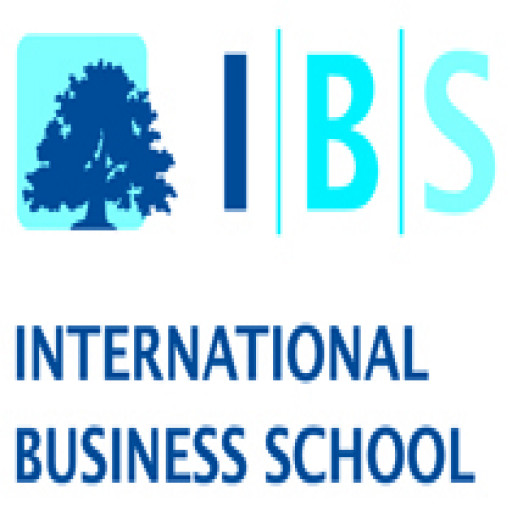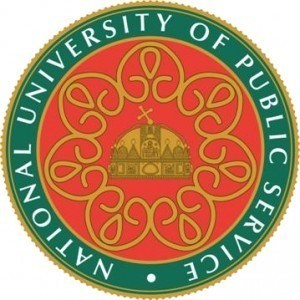Photos of university / #ibsbudapest
The International Business School at Budapest offers a comprehensive Economics degree programme designed to provide students with a solid foundation in economic theory, quantitative methods, and practical applications. The programme aims to equip students with critical thinking skills and a deep understanding of how economic principles influence global markets, national economies, and individual businesses. Throughout their studies, students engage with a wide range of topics including microeconomics, macroeconomics, international economics, financial markets, and economic policy. The curriculum is structured to combine theoretical knowledge with real-world case studies, fostering analytical skills and decision-making capabilities vital for successful careers in economics, finance, consulting, and public policy.
Students will have opportunities to participate in internships, workshops, and seminars that connect academic learning with practical experience, enhancing their readiness for the job market. The programme emphasizes the development of quantitative skills, such as econometrics and data analysis, enabling students to interpret economic data accurately and contribute valuable insights in professional settings. The faculty comprises experienced professionals and academics who bring valuable industry insights and a passion for teaching, ensuring an engaging and rigorous educational environment.
Graduates of the programme will be well-prepared to pursue careers in various sectors including banking, finance, government agencies, international organizations, and private enterprises. Additionally, the programme provides a strong foundation for those wishing to continue their education through master's or doctoral studies in economics or related fields. Graduates will also possess a global outlook, understanding the interconnected nature of modern economies and the importance of sustainable economic development. With small class sizes and personalized support, the International Business School at Budapest guarantees an enriching and tailored academic experience aimed at nurturing future leaders in the field of economics.
Course outline
PhD in Economics students will be encouraged to conduct rigorous academic research to enrich understanding of regional, national, and international economies and to contribute to the set of analytical tools and perspectives that facilitate policymaking in this area.
The PhD in Economics is an advanced research degree during which students undertake supervised but independent research that leads to a thesis of not more than 100,000 words embodying the results of that research. The thesis must demonstrate extended familiarity with and a comprehensive understanding of the subject and the academic literature in the area; show an ability to construct and execute a plan for primary research, including the collection and critical analysis of data; and embody an original contribution to knowledge in the field of economics.
Postgraduate students on our PhD programme will first be enrolled on a Probationary PhD Status. All students enrolled onto the programme will be supported by supervisors who will help them develop a research and writing plan and guide them through the preparation of a formal final research proposal during their first two semesters of study. All research students must also subject their work to an annual progress review. Upon demonstrating satisfactory progress at the Annual Review exam at the end of their first year, which includes successfully defending a feasible research proposal, students are upgraded to Full PhD Status. If students should not be successful at their first Annual Review, they may either be asked to resubmit an amended proposal, have their registration changed to an MPhil (Master of Philosophy) degree or, in extreme cases, have their registration terminated.
Recommended PhD topics for economics
IBS welcomes research proposals that match or are similar to IBS staff’s current research topics and/or fall within the potential supervisors’ areas of expertise. Please consult the guide to writing a research proposal below before submitting an application.
Below is a list of PhD topics that our academic staff have suggested as research opportunities for PhD in Economics students to undertake. IBS encourages PhD candidates to develop a proposal around one of these topics.
Economic policy
- Role and effects of state ownership at various levels of development
- Economic policy-making in vulnerable democracies
- Welfare reforms in ageing societies
- Corruption, its psychological, organizational, social / cross-cultural, and / or developmental aspects
Behavioural economics
- The role of emotions in economic decision-making
- The effects of trust on cooperation and competition
Banking
- Post-2008 business models in banking
- Globalization in banking
- Fintech versus traditional banking models
Finance
- Blockchain and cryptocurrencies: effects on market allocation mechanisms, macro policy, politics etc.
- Revolution in global payments industry and financial inclusion
Networks / big data
- Big data as "game changer"? Ethical and social problems of the data-driven world
- Data as a new form of power, analyzing and interpreting new types of assymmetries
- Social networks and performance
- Network-type factors behind economic competitiveness. (And network-analysis in general)
Academic requirements:
-
First or second class, upper division Master's degree. Please email your detailed research plan and one academic referee’s report soon after your online application to info@ibs-b.hu.
-
Sufficient English skills and academic knowledge that the IBS Research Officer checks with an Orientation Interview via Skype.
English skills:
The IBS Research Officer checks the applicant's English skills with an Orientation Interview via Skype after the online application.
The International Business School at Budapest offers various financing options for students pursuing Economics programmes. Tuition fees are determined annually and are to be paid in accordance with the schedule established by the university. For domestic and international students, the tuition fee for the Economics programme is structured to cover the cost of instruction, access to resources, and support services provided by the institution.
Students have the opportunity to apply for scholarships based on academic performance, financial need, or special talent. These scholarships may partially or fully cover tuition fees and are awarded through a competitive selection process. Additionally, the university collaborates with several financial institutions to facilitate student loans, allowing students to finance their studies with manageable repayment terms. Such loans typically require repayment once the student graduates and secures employment.
Payment plans are also available, enabling students to spread the cost of tuition over several installments within the academic year. This flexible payment system helps to reduce financial burden and makes higher education more accessible for a wider range of applicants. Furthermore, some students may qualify for government grants or subsidies, depending on their nationality and residency status, which can significantly reduce the overall cost of education.
Apart from direct financial aid, students are encouraged to seek part-time employment opportunities arranged through the university, which supplements their income while gaining valuable work experience. The university also provides financial counseling services to assist students in managing their expenses and understanding various financing options available to them.
In summary, the financing of Economics studies at the International Business School at Budapest is supported by a comprehensive framework comprising tuition fees, scholarships, loans, flexible payment plans, government aid, and opportunities for employment. The goal is to ensure that financial constraints do not hinder students from pursuing high-quality education in the field of Economics.
The International Business School at Budapest offers a comprehensive Bachelor’s degree program in Economics designed to equip students with a solid foundation in economic theory, quantitative analysis, and practical skills necessary for understanding and navigating the global economic environment. The program emphasizes a multidisciplinary approach, integrating core concepts from microeconomics, macroeconomics, finance, and international trade, preparing graduates for diverse career opportunities in the public and private sectors. Students benefit from a rigorous curriculum taught by experienced faculty members, many of whom hold doctoral degrees and have significant research backgrounds. The program also incorporates modern teaching methods, including case studies, group projects, and internships, fostering critical thinking, problem-solving abilities, and teamwork skills.
Students have access to state-of-the-art facilities, a rich library collection, and digital resources that support their academic pursuits. The university encourages active participation in seminars, workshops, and conferences to broaden students' understanding of current economic issues and trends. The program layout includes foundational courses in economic theory, followed by specialized electives such as international economics, economic policy, and financial markets. Students are also offered opportunities for exchange programs with partner universities around the world, promoting cross-cultural experiences and global perspectives.
Graduates of the Economics program are well-prepared for careers in economic consulting, banking, finance, government agencies, and international organizations. Many alumni continue their education at master’s and doctoral programs in reputable institutions worldwide. The program’s strong emphasis on practical skills, research, and international exposure makes it a valuable stepping stone for those aiming to influence policymaking, contribute to economic development, or advance in competitive business environments. The International Business School at Budapest maintains close ties with industry partners, ensuring that the curriculum remains relevant and aligned with current market demands.

